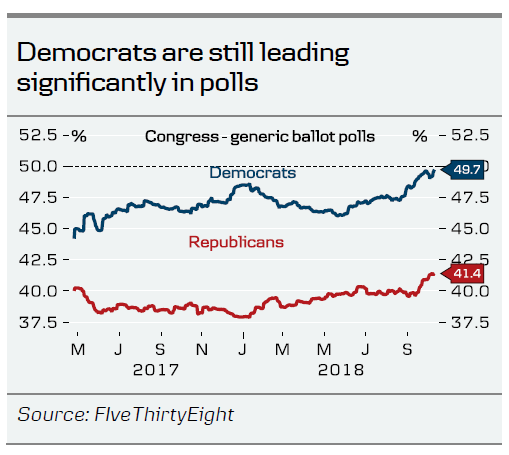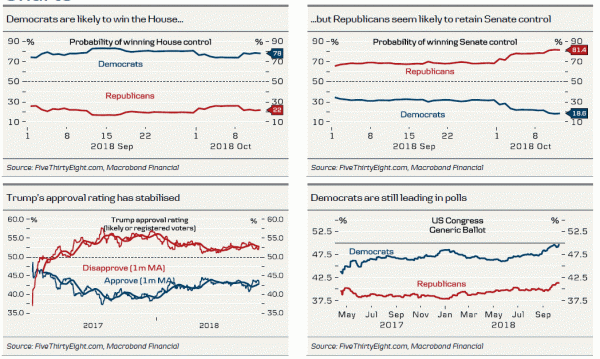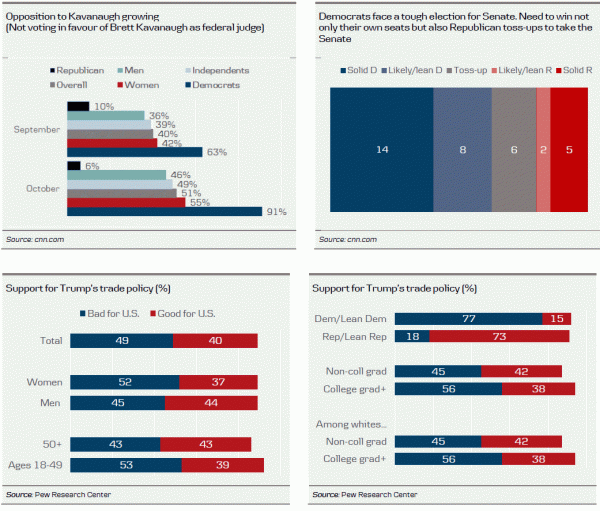Election day on 6 November is approaching. In August and September, the generic ballot polls moved up in favour of the Democrats – from 47.6% at the beginning of August to 49.7% at the time of writing. It remains our base case that the Democrats win the majority in the House and the Republicans retake the Senate. Furthermore, according to FiveThirtyEight, the probability of the Democrats winning control of the House of Representatives has risen in the past week to 78.0% from 73.9% (from a peak of 83.1%). Support for the Republicans has grown lately (currently 41.4%); however, it seems as though Kavanaugh’s hearing has increased enthusiasm for the Democrats. In this regard, President Trump’s approval rating has fallen slightly in the past week to 42.8% from 43.6%.
The Democrats still face a tough Senate map, as not many Republican seats are up for election. Some 24 of the 35 of the seats up for election are held by Democrats at the moment. According to FiveThirtyEight, the Republicans have a 79% chance of retaking the Senate. Actually, the Democrats’ position in the Senate battle has worsened recently due to falling support in the deep red states. The reason for this is not clear but it could be a consequence of Kavanaugh’s confirmation, which seems to have polarised voters.
Some 52% of Americans said they believe the women who accuse Kavanaugh of sexual misconduct. Furthermore, 56% think that Kavanaugh would be influenced by personal political opinions when judging a case (CNN poll). This indicates that some voters question Kavanaugh’s truthfulness and 51% in the poll oppose his confirmation. Overall, we expect the controversy surrounding Kavanaugh to continue in the run-up to election day, hurting the Republicans’ chances of retaking the House.
In the coming week, possibly on Monday, the US Treasury report on FX manipulation is due. We do not expect the report to designate China a currency manipulator as China meets only one of the three criteria required to be legally classified as such.
This week Trump criticised the Fed multiple times and pinned the steep stock market sell-off on the Fed’s monetary policy, rather than blaming the trade war. However, we expect the Fed will ignore Trump’s critique and continue its hiking cycle.
A divided US Congress means that Trump would be unable to push his domestic policy agenda through. In our view, the midterm elections should have limited implications for markets and the economy, as it would be difficult for the Democrats to roll back Trumponomics even if they won both chambers. However, the risk is that he becomes even more hawkish on foreign policy and trade policy after the election.



